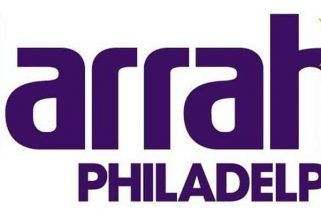Last week, the state of Pennsylvania officiated the process that allowed its casino license holders to apply for sports betting licenses. However, since then, no operator has made a move to this effect and, unfortunately, this is not surprising considering the logistics involved as well as what the state’s lawmakers are charging.
Pennsylvania has always been expected to be a key contributor to the new era of legalized sports betting that begin earlier last month when the United States Supreme Court ruled that the Professional and Amateur Sports Protection Act (PASPA) was unconstitutional. In fact, when the Pennsylvania Gaming Control Board (PGCB) adopted their first temporary regulations on May 31 regardless of issues pertaining to high tax rates, it was an indication that the journey towards fully-fledged sports betting had begun. The hesitation by the Keystone State’s casinos is now certainly going to cause a significant delay-at-best to the whole process.
To begin with, the state is asking for an initial fee of $10 million from the casinos that are interested in offering sports betting. In addition to this, once operational, the casinos will be subject to a 36 percent tax rate on their sports betting revenue – a rate that if stands will be the highest in any jurisdiction in the world.
Speaking to The Philadelphia Inquirer, the chief executive officer of William Hill, Joe Asher pointed out that Pennsylvania’s insanely high tax rate puts it in a bucket of its own and this makes it very difficult to figure it out. This tax rate drove William Hill away from the state in favor of other states such as New Jersey where the rate is considered to be manageable.
“The legal market in Pennsylvania could be very small — smaller than it should be — because of this tax rate. Someone will pay the money, but it will be a small business compared to what it could be because it will be very hard to compete with the bookie. Right now, as we’re talking, you don’t hear a whole lot about Pennsylvania, and that’s because of the structural challenge involving the taxes,” Asher said. “If you’re paying $10 million up front for the privilege of paying 41 percent (PA’s 36 percent plus the federal government’s 6-percent rate) in … taxes, plus the infrastructure costs, it’s difficult for me to see how you make money in Pennsylvania.”
Is It the Right Approach?
Apparently, it turns out that the high tax rate and the humungous initial fee was an intentional move by the state regulators and lawmakers – they believe that the sports betting venture is too lucrative to miss out on and the operators will eventually come round. Perhaps the state does not want to rush the process so as to make sure that they do everything right.
If that is the case, then the state might be on to something that we are yet to fully grasp. As Robert Matzie, a Pennsylvania Rep. points out, “no matter how the economy’s going, whether it’s in recession or booming, the one business that never goes out of business is the casino.”












